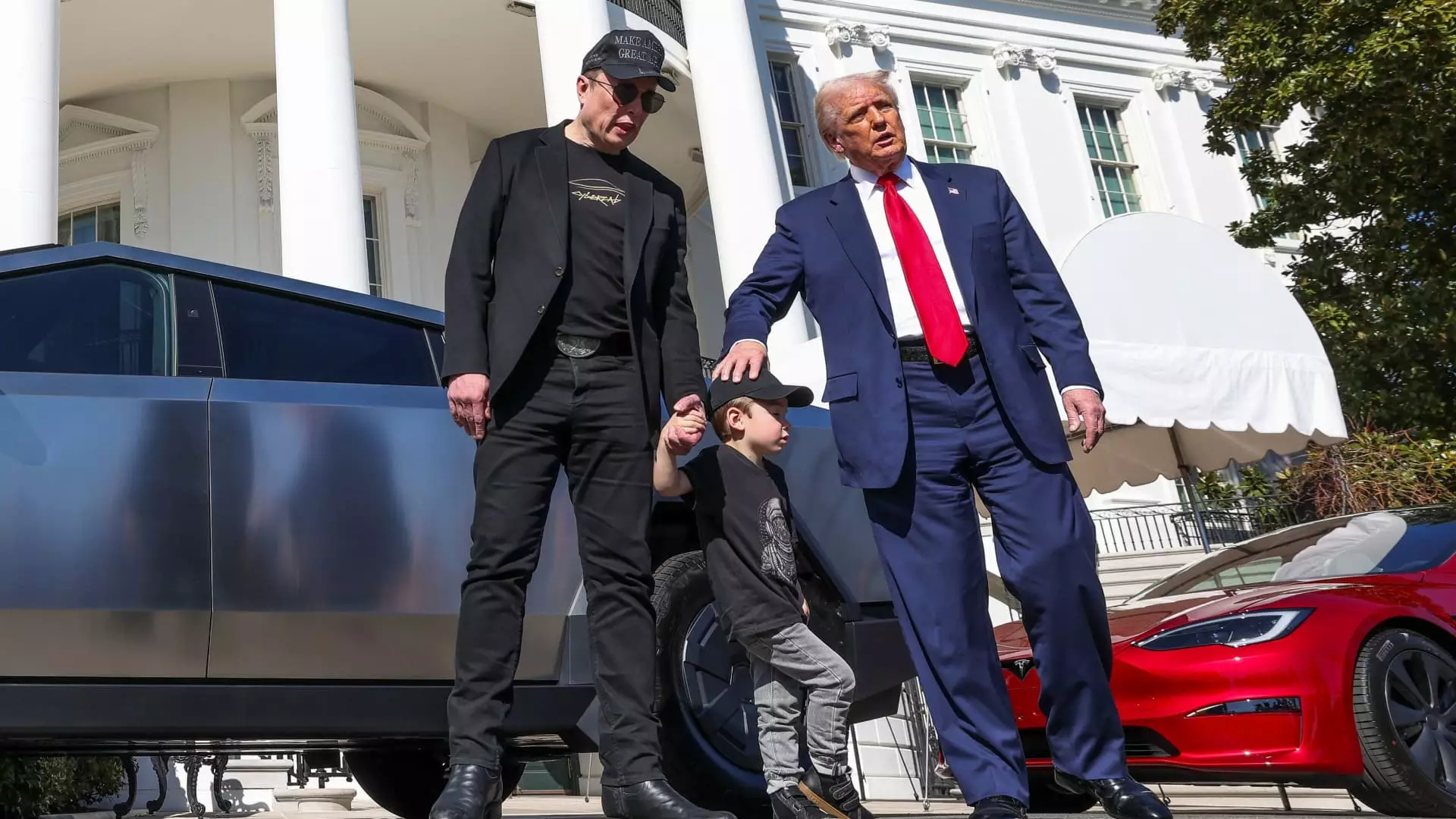Elon Musk’s recent statements on tariffs during Tesla’s first-quarter earnings call shed light on the intricate relationship between international trade policies and the automotive industry, especially in an era defined by unpredictability. Musk conveyed a nuanced position—acknowledging that while Tesla is currently better insulated from tariff consequences than many competitors, the overarching unpredictability embedded within the tariff structures poses a significant threat to operational stability. As tariffs fluctuate and nations recalibrate their trade strategies, the ripple effects can be far-reaching for every automobile manufacturer.
It’s important to unpack Musk’s declaration of Tesla being the “least-affected car company” by tariffs. Musk attributes this relative immunity partly to Tesla’s localized supply chains in key markets such as North America, Europe, and China. Unlike traditional automakers, Tesla has streamlined its operations in a way that reduces dependencies on any single geographic region, a strategic advantage that could be a lifeline as trade tariffs wax and wane. Still, the data from Tesla’s recent quarterly reports tells a different story—one of declining revenues and plummeting net income that can’t be ignored.
Financial Struggles Amid Trade Tension
The backdrop of Musk’s comments reveals a harsh financial landscape with a staggering 20% year-over-year decline in automotive revenue and a startling 71% drop in net income. This juxtaposition of optimistic rhetoric about tariffs against the backdrop of poor financial performance raises questions about the robustness of Tesla’s business model amidst economic turmoil.
Musk’s candid acknowledgment of the challenges posed by high tariffs is particularly intriguing, especially given his close relationship with political leaders like former President Donald Trump. His remarks regarding the necessity for a strategic response to “predatory tariffs” underscore an underlying tension—the balance between advocating for lower tariffs while competing in a market that is increasingly affected by national policies. Furthermore, Musk’s sharply critical remarks about Trump’s trade adviser highlight the inherent discord within the administration’s trade policies, which could directly impact his company’s bottom line.
The Complexities of Supply Chains
Tesla’s intricately woven global supply chains present both advantages and vulnerabilities. While Musk has emphasized the company’s strides toward localized manufacturing, the continued reliance on foreign markets for critical components cannot be disregarded. The sourcing of lithium iron phosphate battery cells predominantly from China poses a unique challenge that Musk himself flagged during the earnings call—the “outsized” impact of tariffs on Tesla’s energy business is not just a risk but a reality that could stymie growth.
Musk offered an optimistic outlook about transferring the manufacturing of these critical components to local U.S. facilities. Still, the realities of scaling production to meet the burgeoning demand for electric vehicles while simultaneously navigating a complex regulatory and tariff landscape cannot be overstated. The ambitious plans for enhancing domestic manufacturing capabilities suggest a forward-thinking approach, yet questions linger regarding the timeline and feasibility of implementing these initiatives effectively.
Proactive Approaches in a Chaotic Environment
The challenges presented by tariffs and trade uncertainty are compounded by Musk’s optimistic advocacy for “predictable tariff structures” and free trade. These ideals reflect a broader sentiment within the tech and automotive industries—companies thrive in environments where they can plan confidently. Musk’s call for stability resonates in a climate of volatility where businesses are often left to react rather than strategize.
Tesla’s forward-thinking practices stem from an understanding that adaptability is crucial when external pressures mount. Musk’s efforts to secure additional supply chains outside of China highlight a strategic shift towards greater resilience. His revelations about the limitations of current U.S.-based manufacturing capabilities illustrate the transitional nature of global supply chains, emphasizing the need for diversification to mitigate risks associated with geopolitical tensions.
Musk stands at an intersection where visions of innovation meet the hard realities of international trade, encapsulating the duality of opportunity and risk in our modern economy. His approach combines a keen understanding of market dynamics with a bold vision for the future, setting a challenging yet potentially rewarding path for Tesla as it navigates these tumultuous waters.


Leave a Reply